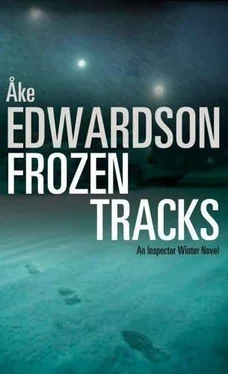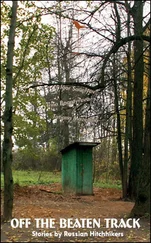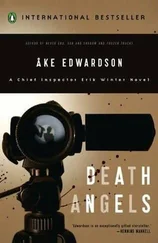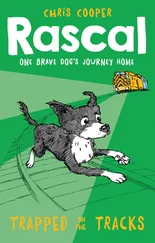The traffic was denser than he’d expected. Normally he would be sitting with a cup of excellent coffee and a large sandwich of freshly roasted ham at this time-at least, that had been normal for the last three years. We’ll never get through it all, Angela always said. This is the best part, he would say. The first slice after roasting.
No Christmas ham this year, not here in Gothenburg. No Christmas tree, not at the moment at least. He saw several desperate men with Christmas trees on their car roofs, an odd sight for somebody on their first visit from, say, Andalucía. This is Sweden: Take up thy fir tree and drive. Where to? Why?
Porqué? He suddenly felt an intense longing for some peace and quiet, some food, a strong drink, a cigarillo, music, his woman, his child, his… life, the other one. He could see Maja’s face, the photograph of Micke on Bengt Johansson’s desk. Simon Waggoner. And just as suddenly the longing had vanished, he was back at work. He was on his way, on the move. You can never let yourself stop, as Birgersson used to say, but less often now. Never stand still. Never lack faith, never doubt, never let it get to you, never run away, never cry, always put up with everything. Bullshit, Winter thought. Birgersson had also gotten the message, but later.
He turned off at the Margretebergs junction. The attractive wooden houses were at their best. Torches were burning in the cautious daylight. It was a clear day. The sun could be glimpsed here and there in the gaps between the houses. There was still a thin layer of snow on paths and lawns. God was smiling.
Winter saw some children in a playground in the center of town. There were a lot of grown-ups with them. Two men turned to look as he drove slowly past in his black Mercedes: Who was he, what was he doing here?
He parked outside the Waggoners’ house.
A wreath was hanging on the front door.
There was a smell of exotic spices in the hall.
“For us tomorrow is the big day,” said Paul Waggoner with his English accent, as he took Winter’s overcoat and hung it on a coat hanger. “Tomorrow’s Christmas Day.”
“Is that pudding I smell?” asked Winter.
“Which one?” asked Waggoner. “We’re making several.” He gestured toward the living room. “My parents have come over from England.”
I’ll call Steve Macdonald when I get home, Winter thought. Or maybe from the office. Merry Christmas and all that, but maybe he can do some thinking for me, before all that pudding gets to work on him.
“How’s Simon?”
“He’s doing pretty well,” said Waggoner. “He’s speaking only English at the moment, has been for a few days now. It just happened. Perhaps he wanted to prepare himself for his grandparents.”
“I’d better speak English to him, then,” said Winter.
“Maybe,” said Waggoner. “Will that be a problem?”
“I don’t know. It might be an advantage.”
***
It was the same room as before. Simon seemed more relaxed, recognized Winter.
“Will you get any Christmas gifts this evening?” Winter asked.
“Today and tomorrow,” said Simon.
“Wow.”
“Grandpa doesn’t really like it.”
“And this is from me,” said Winter, handing over a package he had in his shoulder bag.
The boy took it, obviously pleased. There was a gleam in his eyes.
“Oh, thank you very much.”
“You’re welcome.”
“Thank you,” said Simon again.
He opened the little package. Winter had thought about giving the boy a watch to replace the one that had disappeared. Should he or shouldn’t he? In the end he’d decided not to. It could have been regarded as a bribe in return for information. By Simon. Perhaps it was.
Simon held up the squad car, which was one of the latest models. It was an expensive toy, with a lot of details. The word POLICE was painted on the side. He couldn’t very well give the boy a remote-controled Mercedes. CID model.
The police car could be driven wherever there was no speed bump in the way.
“Want to try it?” Winter asked, handing over the control panel that was hardly any bigger than a matchbox.
Simon put the car down on the floor, and Winter showed him the controls without actually touching anything himself. The car took off, and crashed into the nearest piece of furniture. Winter bent down and turned it in the right direction. Simon reversed, then drove forward. He switched on the siren, which was very loud for such a little car.
I wonder if he heard the siren when he was lying on the ground? Winter thought. When they had found him?
“Great,” said Simon, looking up with a smile.
“Let me try it,” said Winter.
It was fun.
WINTER SAT ON THE FLOOR AND STEERED THE POLICE CAR THROUGH tunnels made of chairs and tables and a sofa. There was a blue light rotating on the roof. He switched on the siren as the car went past the door. He switched it off.
Simon had agreed to accompany Winter to the place where he had been found. That was how Winter had preferred to see it: agreed to accompany him. It felt important for Winter.
He knew that it was usually difficult for a child under seven to re-create an outdoor setting.
He had driven along various roads, back and forth. Where had the mister been taking Simon? To his home? Was he interrupted? Did anything happen? Did he see anything? Anybody? Did anybody see him? Did the mister throw Simon out of the car close to his home?
The police had made door-to-door inquiries everywhere, it seemed. Gone back to places where there had been no answer the first time around.
They had made inquiries along possible routes the car might have taken, makes of car, times, what the driver looked like. In-car decorations. Rearview mirrors. Items hanging from rearview mirrors. Green, perhaps. A bird, perhaps. A parrot, perhaps.
They had been in touch with the Swedish Motor Vehicle Inspection Company. Repair workshops. Salesrooms. Real-estate companies. Staffed multi-story parking garages.
They had checked all the cars owned by staff at the nursery school. Cars that had been parked nearby, were parked nearby.
Simon had tried to explain something. They were sitting on the floor.
Winter tried to interpret it. He knew that several studies suggested that a child’s memory was very consistent and reliable when referring to situations that had affected its emotions and had been stressful. He knew this, regardless of what university researchers might say about the ignorance of him and his colleagues.
Between the ages of three and four, children have a particularly good memory for things that are emotionally charged and central to a situation, while they can forget details that are less important in the context.
Several years after being kidnapped, children could still supply accurate details of things central to the abduction, but often got peripheral details wrong.
That meant that the details the children spoke about were significant.
Nevertheless, everything had to be regarded with skepticism, of course, and carefully considered. He had heard of a case where a five-year-old boy had been asked to describe what he had seen and experienced while with his abductor. The boy made some gestures and said he had seen “one of those things that have lots of telegraph wires hanging from it.” The interviewer took him out in a car, in the hope that the boy would be able to point out what he meant. In the end he indicated a high-voltage electricity pylon, broad at the base and getting narrower toward the top.
But in fact he’d been trying to describe something else. In the abductor’s house the police found a souvenir, a model of the Eiffel Tower. That’s what the boy had meant.
Читать дальше












